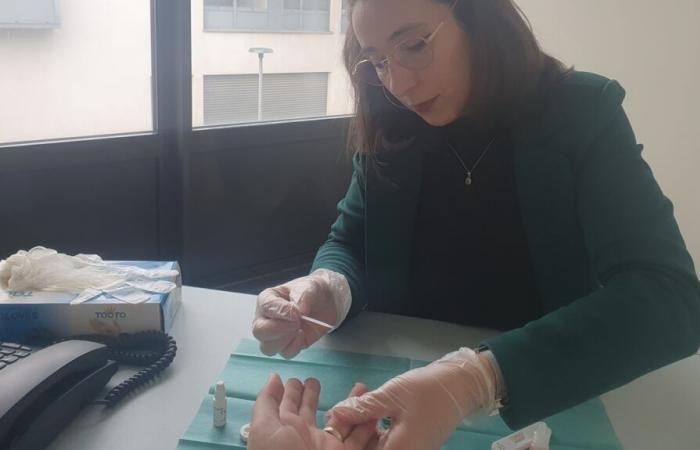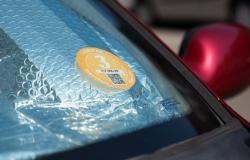“Be careful, I’m going to prick your finger”warns Florence Villaudière, nurse from the Addictions France association. “It shouldn’t hurt, I’ll just take a few drops of blood”she explains. Tuesday December 3, 2024, two days after World AIDS Day, the association held a screening stand for students at the Center for Higher Studies in Châteauroux.
In 2023, 5,500 people will discover their HIV status in France, and it is estimated that around 11,000 people do not know that they carry the virus. Figures which remind us of the importance of screening for sexually transmitted infections.
Free screening, without prescription, without laboratory appointment
“We hear a lot less about HIV than before”worries Coline André, the student behind the organization of the event. “But screening is important, and I told myself that doing this on site would encourage students to come. » According to Chloé Bignet, nurse at Addictions France, “People are getting tested less since Covid-19. They are also much less afraid of HIV since we know that we can live normally with it. We die less from it, but we have to get tested”she warns.
Among the few students present at the start of the day, the majority were young women. “I’ve never done it, so I thought it was a chance when I saw the poster, but it doesn’t really worry me.”smiles Céline. A shared feeling. Flavie is also coming for the first time. If she doesn’t have “no reason to worry”she gets tested “to have a clear conscience, because we are never 100% sure”. Ipek is in his first year at university, studying Applied Foreign Language. “In high school, we had a course on STIs (sexually transmitted infections). It was running through my head. I wasn’t worried, but I wanted to make sure everything was okay.” she says, leaving after a negative test.
No definitive diagnosis
Trod, a rapid diagnostic orientation test, used in this screening campaign can provide a rapid result, in less than thirty minutes for HIV, hepatitis B and C. “It has to become a harmless gesture”continues Florence Villaudière, who emphasizes, however, that this test does not “does not make it possible to make a definitive diagnosis, but to direct people towards appropriate medical support if the test turns out to be positive”.
And while the prospect of discovering that you have the virus can be intimidating, “we are healthier when we know it and are supported”notes Chloé Bignet. Since 2022, blood test screening has been free, without a prescription and without an appointment in all French laboratories. Since 1is September, this is also the case for other STIs, for people aged under 26 who would like to be tested.






